Cracking clinical codes
Healthcare provision involves the collection and processing of masses of information about patients, morbidity and treatments. Clinical codes allow this data to be recorded in standard alphanumeric formats so it can be analysed and shared more efficiently.
In the independent healthcare sector, clinical codes were most commonly used for billing but this is changing. This article gives an overview of clinical codes and explains how Healthcode are making them more accessible and beneficial for everyone.
Types of clinical codes
Here are the main types of clinical codes you are likely to encounter in the independent healthcare sector:
Diagnosis codes
First produced by the World Health Organisation in 1949, the International Classification of Disease (ICD) provides alphanumeric codes for hundreds of thousands of pathogens and health problems. Member states are currently using ICD-10 but this is due to be replaced by ICD-11 in January 2022. Some independent hospitals in the UK record patient diagnoses using ICD-10 but others still use a version of its predecessor, ICD-9.
Procedure codes
In the independent sector, invasive procedures and surgical interventions, including biopsies, hysterectomies or hernia repairs, are recorded for billing using the Clinical Coding and Schedule Development Group (CCSD) codes. Meanwhile, NHS hospitals code interventions and surgical procedures using OPCS-4 (the Office of Population Censuses and Surveys Classification of Surgical Operations and Procedures).
Industry Standard Charge Codes
Healthcode developed this coding system so independent providers could record and charge PMIs for clinical and non-clinical services which are not covered by CCSD. There are approximately 28,000 codes covering specialties such as pathology, radiology and prosthetics.
Code for success
The world of clinical coding tends to be highly specialised which is why the NHS and some larger private hospital groups employ trained and qualified clinical coding teams to code patient records for hospital episode statistics.
Independent practitioners may not have the resources to employ professional clinical coders but Healthcode’s expertise in this area can help you bridge the gap:
Support with billing
When billing PMIs, practitioners must use the correct procedure or service charge code and description. However, different insurers have their own schedule of procedures and fees which means that a charge and procedure that is valid for one PMI might not be accepted by another.
Along with missing/incorrect patient information, a coding error is one of the most common reasons for an electronic bill to be rejected when Healthcode’s Clearing Service automatically checks the bill against the relevant PMI criteria. Practitioners are understandably frustrated when this happens but this is because the code or code combination is not accepted by that PMI, not because Healthcode has rejected it.
Healthcode want to help you ensure your bills are validated first time and enter the PMI’s payment cycle without delay. We therefore recommend the following:
• Always get pre-authorisation using the appropriate code for the treatment to be provided
• Contact Healthcode’s expert Coding Team if you are struggling with rejected codes, pre-authorisations and other coding queries. We can explain what codes you can and can’t bill for and where necessary we can liaise directly with PMIs to address problems and help ensure pre-authorised codes are accepted by the Clearing Service. Email us direct at coding@healthcode.co.uk
• If you are using Healthcode’s billing software and have undertaken a procedure you regularly perform, simply select it from the dropdown menu
Coding technology
Independent hospitals are required to submit information on admitted patient spells to the Private Healthcare Information Network (PHIN) which publishes performance measures about hospitals and consultants. PHIN requires hospitals to use the same ICD-10 diagnoses and OPCS-4 procedures codes that are used in the NHS rather than ICD-9 and CCSD codes.
To help hospitals meet their obligations, Healthcode have developed clinical coding tools, which features clever dual coding technology. Simply put, this enables providers to code diagnoses or procedures in the recognised format for billing and then, where possible, translate these into the equivalent ICD-10 and OPCS codes for submission to PHIN.
Simplifying procedure codes for everyone
Healthcode’s recent coding project was driven by the need to record practitioners’ scope of practice in a clear and accessible way on The Private Practice Register (The PPR).
Scope of practice data is needed by practitioners for appraisal and revalidation purposes but also by hospitals so they can manage consultant practising privileges in line with the Medical Practitioner’s Assurance Framework (MPAF).
Our Clearing Service technology enables us to capture partial scope of practice data in the form of the CCSD procedure codes used on validated hospital bills where the consultant is identified as the controlling specialist. However, it is important that this data is presented on The PPR in an accessible way so it can be readily understood by someone with no coding training.
To achieve this, Healthcode reviewed our master list of CCSD procedure codes and collated these into groups with a plain language description. To date, we have categorised 2,000 CCSD codes into 600 unambiguous procedure groups. For example, the procedure group “repair of hernia – abdominal wall” includes 30 CCSD codes such as “primary repair of inguinal hernia” (CCSD code T2000) and “laparoscopic repair of recurrent inguinal hernia – bilateral” (CCSD code T2112).
Users can see a simple definition for the procedure group under a practitioner’s scope of practice and then expand it to see the specific CCSD codes and procedures they have performed at qualifying hospital and clinic sites over a rolling 12-month period.
Learn more about Healthcode here: www.healthcode.co.uk

About this Partner
Healthcode provides an extensive range of specialised IT solutions and systems for the private healthcare sector. Whether you require a practice management system, online billing, secure messaging or clinical coding tools, Healthcode can help you increase business efficiency and lower costs. The Private Practice Register is a central reference point and information repository for practitioners avoiding duplication of effort.
